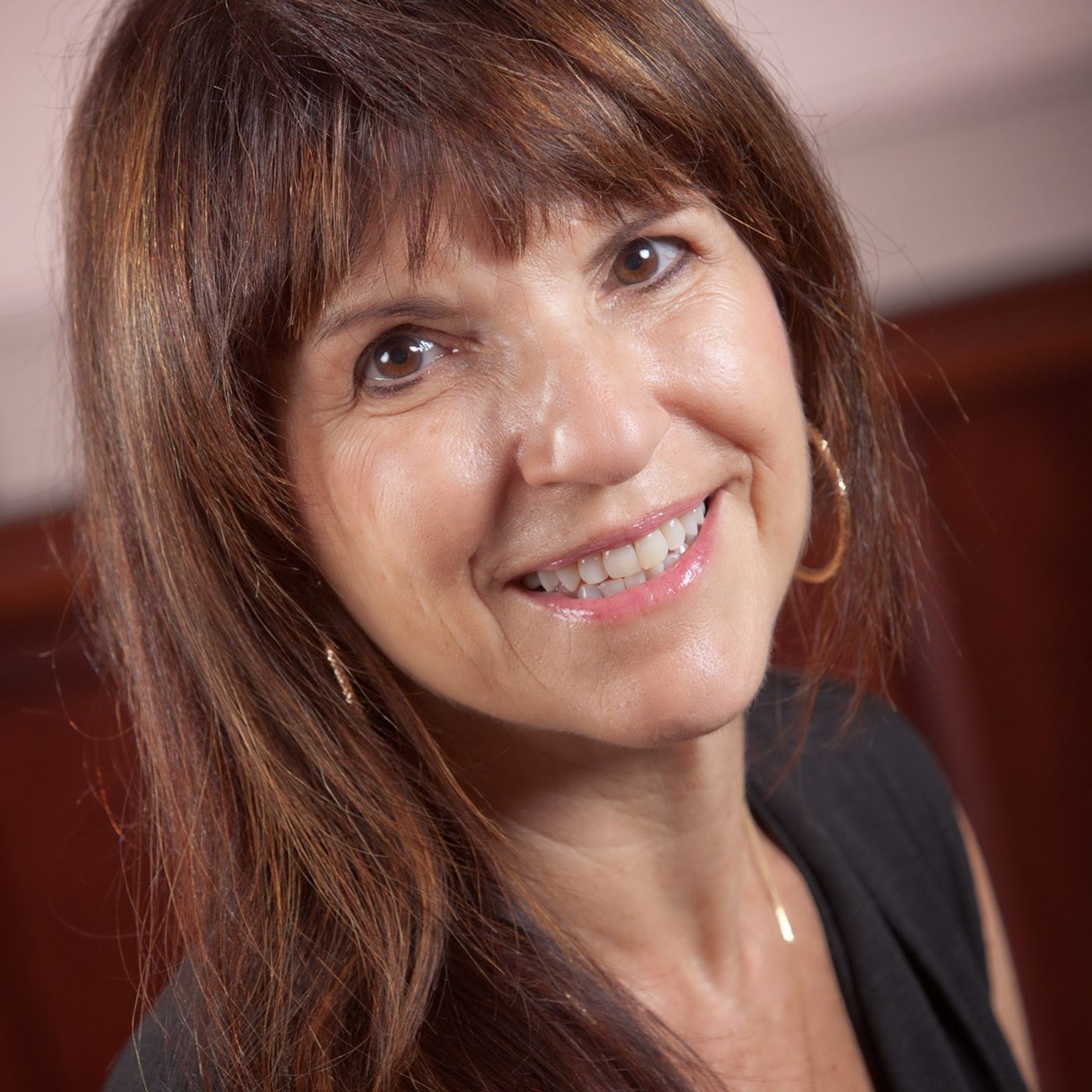
🎤 PODCAST • Failure ~ How can failure contribute to happiness ~ a short interview with Dr Eric Daniels

www.drkenner.com Answers Your Questions
- Failure can be reframed as a step towards happiness.
- Dr. Eric Daniels has expertise in American history and ethics.
- Edison's story exemplifies learning from failures.
Shownotes Transcript
The Selfish Path to Romance. Download Chapter 1 for free at drkenner.com and at amazon.com. This boy is at a fragile point right now. I do understand he is at a fragile point, okay? He's got problems. Well, what problems does he have, Sean? He pushes people away before they have a chance to leave him. It's a defense mechanism, all right? And for 20 years he's been alone because of that.
And if you push him right now, it's going to be the same thing all over again, and I'm not going to let that happen to him. Now, don't you do that, Sean. What, Jerry? Don't you do that. Don't infect him with the idea that it's okay to quit, that it's okay to be a failure, because it's not okay, Sean.
How can failure contribute to your own happiness? I mean, that sounds like a contradiction on the face of it. With me today to discuss this is Dr. Eric Daniels. He has his Ph.D. in American history from the University of Wisconsin. He's taught at the University of Wisconsin, and he is currently a professor at Duke University in the program on Values and Ethics in the Marketplace.
and Dr. Eric Daniels is currently working on a book discussing how moral ideas, moral ideas, have shaped the course of American political life.
and his tapes and books are available on my website. He's written The History of American Moral Thought and The Inventive Age in American History. And welcome to the show, Dr. Daniels. Well, thank you. It's good to be here. It's a pleasure to have you on. When we think about failure, many of us give up at the first signs of failure. We'll try to get a job, and we get turned down, and we conclude, oh, well, what's the use? Nothing ever works out right, or I can't do anything right, and we give up.
or we try a new project or a new hobby and we're a failure at the beginning. Tell us about some of Thomas Edison's failures and how he turned them into a benefit for himself, how they contributed to his happiness. Well, that's an interesting thing because Thomas Edison, over the years, made so many miraculous inventions that we tend to associate him with success.
But actually, if we could analyze the number of experiments, and I'm sure any historian that wants to go back and look through Edison's various experiments will notice that Edison did a lot of things that just didn't work. And over the course of his life, he made many, many trials.
and he came up with things that just didn't work. There's even a famous story when Edison had become more established and he had his own laboratory where he employed engineers and mathematicians and others to work for him. And Edison had gone through a number of trials on a particular experiment, and the guy that was working with him said, "We don't know anything."
And Edison looked at him, and he said, what do you mean? We know 837 things that don't work.
And this was with what? I think this was when he was developing the power system for the light bulb. Was it the filament? Yeah, the filament for the light bulb is another great example. Edison, in trying to, he had developed the principles of how electric light would work. He had made the significant scientific advances that allowed him to
what the basis for electric light bulbs would be, but he couldn't yet find the right fabric or the right type of material to use as the filament in our light bulbs today. And so Edison decided, well, this is the last step. He tried something. He tried the two or three obvious things that any scientist would have tried, and they failed.
And a lot of people might have given up at this point. A lot of people might have said, well, you know, maybe we weren't meant to make light. Because, after all, Edison was really striking out in a new direction, scientifically, with his theory about electric light. And so he might have given up, but instead he said, no, I'm going to make light.
I'm confident that what I'm doing is the right thing. I just need to find the right material. And so he had his engineers and others gather all kinds of materials, anything they could think of, and he would roll these into filaments and they would try them again and again and again and again, literally almost every
I think something like 500 or 600 different materials were used. I've been to both of his labs, and I just think he's incredible. He had animal parts from all over the world. Sure, and he's got plants from all over the world. Yeah, and you can still visit there today at the facility in Orange, New Jersey. Yeah, I think in Tampa, too. Yeah, and it's just a vast warehouse of materials. Because even beyond the light bulb, with his other inventions,
He always knew that some stuff, some part of reality, some thing out there might be what I need. So I need to collect this stuff so that when I'm doing experiments, I won't let the failures get me down. I'll always have more resources. I'll always have more tries. I'll always have more opportunities to make a success out of this.
So instead of saying, let's go back to the candle, he...
Even though we might call it that, we might say, well, you know, he failed at this, he failed at that, it may not actually be in his mind a failure. It was always just more data for his mind to process. It was another thing that didn't work, and so he filed that in his mind. This doesn't work for this application.
And that's knowledge. Now, what do you do when other people say, oh, come on, Edison, give up? You know, Tom, haven't you tried enough stuff? You're wasting your time. This is ridiculous. You're stupid. How did he deal with other people haggling him? Hey, I got to interrupt this because we've got to pay some bills. 30 seconds, that's it. A very quick ad, and then Ellen will be back. Romance. Oh, I wish guys knew more about what we want from a relationship.
Boy, I wish I knew more about what I want. Where's that ad I saw? Ah, here it is. The Selfish Path to Romance. A serious romance guidebook. Download chapter one for free at selfishromance.com and buy it at amazon.com. Hmm. The Selfish Path to Romance. That is interesting. Haven't you tried enough stuff? You're wasting your time. This is ridiculous. You're stupid.
How did he deal with other people haggling him? Well, one of the things that Edson, from very early on, when he was working on inventions in the telegraph, he simply refused to accept any kind of accepted dogma about the way things worked. He said, look,
My knowledge comes from my interaction with the world, and I have confidence in that. I have a belief that what I can do will have efficacy, that it will have good effects. And he had some examples in his life. There were things in his life that he had done and that he had thought through that worked. And he said, look, I can achieve these things. I can...
something good and that's why i have the confidence that i'll be able to do that again in the future no matter what anyone because throughout the life people tried to tell him that he was wrong on on scientific grounds on moral ground on all kinds of different issues but he never listened he always believed in himself and he believed that he always had the capacity in the future to repeat these uh... successes that he had had in the past he didn't focus on the failures or other people's perceptions
And I think that's what Ayn Rand calls being a first-hander, not a second-hander, you know, always worried what other people think about you, but using your own mind well and relying on your own judgment. Indeed.
In terms of dealing with failure, what are one or two things that we can learn from Edison's approach to improve our own lives? Well, I think one of the things that I mentioned was how we mentally, what do we think of our attempts that don't succeed? How do we...
Think of them. And that's an important difference between successful inventors and unsuccessful people who are mired in failure, is that he didn't think of them as failures. He didn't simply wipe them off the slate. He didn't say, well, this is useless. Oh my gosh, what did I just... He didn't say to himself, what I just did was useless. He said to himself, what I just did was another step along the road to success.
And he conceptualized his failures as steps on the road to success. And even if what one, you know, for us, for applying these ideas to our lives, even if what we do doesn't succeed, if we try something, if we try and get a job, if we try and do something else,
The attitude that we need to have is there's always something that we can learn from our failures. So even if you had a bad marriage and it broke up, or a bad relationship with someone, you can learn from it rather than self-destruct. Yeah, rather than saying, look, I'm no good, I don't know how to make the right decisions in my life, I didn't pick the right wife or husband, you say to yourself, well...
This allows me to gain more knowledge about myself and about what I need in my relationships or what I need in a job or whatever the area of your life it has to be. Or what I did wrong that I can improve. Yeah, and it's not a focus on the negative consequences. It's a focus on the positive aspects because really these aren't positive things. As painful as they might be in the short term, they give us more knowledge.
And I want to thank you so much for joining us today and talking about how failure is not an obstacle to happiness, but can actually contribute to your long-range happiness. Thank you so much for joining us today. Thank you. For more Dr. Kenner podcasts, go to drkenner.com and please listen to this ad.
Here's an excerpt from The Selfish Path to Romance by Dr. Ellen Kenner. The ability to compromise is essential when you become parents. The significant responsibility of caring for children throughout their growing years requires that partners have excellent communication skills, including methods of fairly dividing up child-rearing responsibilities.
Otherwise, misunderstandings grow, small slights ignite large fires, and the soulmate relationship perishes. Wall Street Journal writer Sue Schellenbarger reported on this phenomena in a 2004 article titled, And Baby Makes Stress, Why Kids Are a Growing Obstacle to Marital Bliss.
Three reasons cited included debt, overspending on the baby, confusion over roles, who should be the stay-at-home parent and who is the breadwinner, and the inability of partners to talk without fighting. You can download Chapter 1 for free at drkenner.com and you can buy the book at amazon.com.